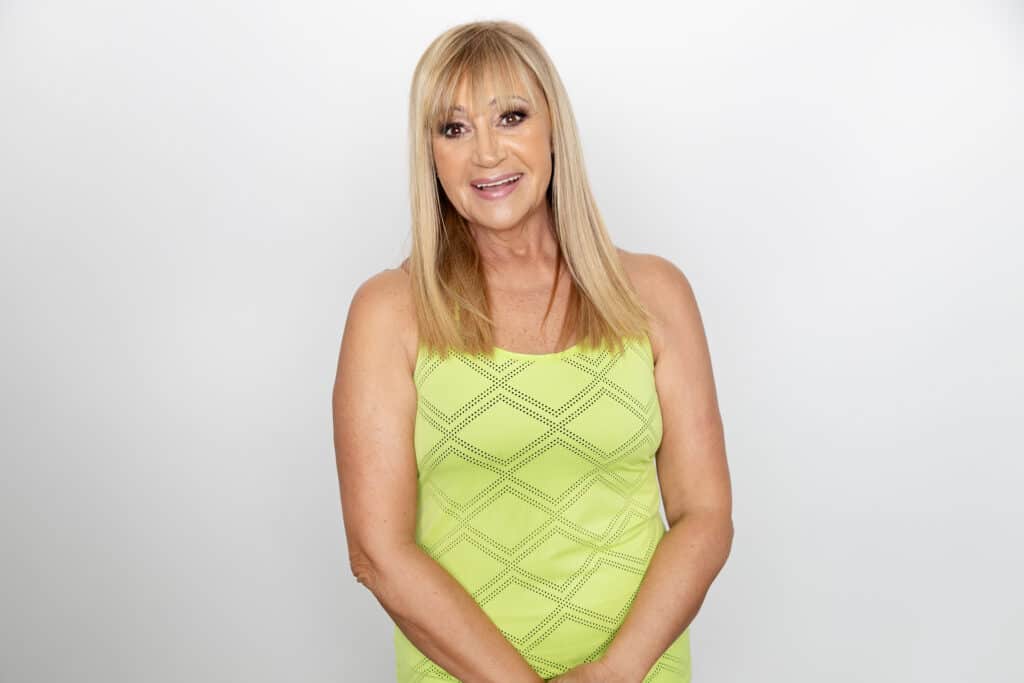 Movement
read more >
Movement
read more >

Me-N0-Pause! Top Tips on Weight Loss During Menopausal Transition
Now this is such an important topic and I’m excited to dive into it with you guys. It can be SUPER frustrating at any stage of life when you see the scales start to shift and you can’t seem to understand why.
How to Lose Weight & Keep it Off Around Menopause
Now this is such an important topic and I’m excited to dive into it with you guys. It can be SUPER frustrating at any stage of life when you see the scales start to shift and you can’t seem to understand why. Even more so around the menopausal transition, when you might feel like despite your best efforts, your body is working against you! I definitely don’t want you to feel that frustration, so I want to delve into the why’s and what’s and then once that foundation of knowledge has been established, I’ll talk about how to lose weight (and prevent gain) around this difficult time of hormonal changes.
What is Menopause and other terms you hear like perimenopause and postmenopause?
Menopause marks the end of a woman’s reproductive life and technically means your final period. On average it happens between 45-55 years of age. The terms perimenopause or menopausal transition are interchangeable and cover the transition from your reproductive age through to this menopause. Eggs are no longer produced by your ovaries and production of oestrogen and progesterone changes. Once you’ve had no consecutive period for 12 months, you are considered to be postmenopausal.
Many perimenopausal women experience symptoms like irregular cycles, headaches, breast swelling and pain, mood swings, anxiety and depression, memory difficulties, crawling sensations under the skin, muscle and joint aches, poor sleep, weight gain (especially around the belly). Often going through the menopausal transition you are more symptomatic than in postmenopause.
Why Does Weight Gain Occur?
I know – ageing + hormonal changes = not good for weight loss. Unfortunately, this is an incredibly common problem that women going through the menopausal transition experience. We know that changes in body weight during and after menopause are associated with both lifestyle factors, ageing, and the hormonal changes of menopause. We also know that these hormone changes are associated with a gain of body fat and a loss of lean body mass.
Many women in this stage of life find it difficult to make time to exercise, resulting in the loss of muscle and strength, which in turn also lowers your metabolism. Frequency and duration of exercise also may need to increase – basically your body is not expending as much energy as it used to during the same activity. Not seeing results where you used to can be frustrating and very demotivating.
Diets high in carbs, sugars, alcohol and processed foods also contribute to weight gain, for obvious reasons – but when you are eating carbs most of the time, insulin in your body is constantly stimulated, and this can ultimately result in insulin resistance, which is when your cells begin to say no to insulin!
High impact training not only wreaks havoc on your joints but it can lead your body to begin releasing cortisol, the stress hormone, which can lead the body to stubbornly ‘hold on’ to fat.
A lot of factors that contribute to your ability to lose weight are out of your control – decreased estrogen can make insulin better at storing fat by inhibiting its ability to lower glucose. Your body begins producing significantly less estrogen and progesterone when menopause is reached, which puts you at risk for cardiovascular issues, low bone density, high-cholesterol, insulin resistance, diabetes and osteoporosis.
Many women report that they have difficulty sleeping during these periods of change as well. Lack of quality sleep also linked to weight gain. Whether it is stress or night sweats, whatever is keeping you up at night can also contribute to weight gain.
Basically, in a nutshell, these hormonal changes during this transitional period may result in fat gain and heightened risk of chronic illnesses. Yikes! But don’t worry – the hardest part is getting motivated to manage these changes and remaining patient with yourself.
How Do I Lose Weight Then?
Don’t worry – it IS still possible. It may take more motivation, patience, time and much less carbs but the end result will be your body working optimally. Maintaining a healthy weight and minimal visceral (belly) fat starts with diet and exercise.
Diet: Does A Low Carb Approach Work?
I attended this incredible conference on the weekend and one thing that really struck me was the discussion about carbs – who needs them, who doesn’t need as MUCH of them. Women should consider a lowER carb diet during these years of perimenopause and menopause, because of their lowered estrogen levels and potentially their increased resistance to insulin. If you have spoken to your doctor and it has been determined that you are insulin resistant, a low carb diet might be suitable for you.
I firmly believe in a moderate carbohydrate intake (90 – 130g per day) rather than a VERY low approach. Not only is a very low carb (<50g per day) only suitable for people with certain medical conditions, but it is also a difficult and unsustainable way to lose weight and keep it off. A low to moderate carb approach has been shown to have excellent weight loss and health benefits for those in perimenopause or menopause. However, I would not recommend it for those women who are still ovulating – it can wreak havoc on hormones, lead to mood fluctuations and worse still lose your monthly period.
Using a lower-carb diet to lose weight and keep it off during menopause can be a very effective way of managing your weight. When you are eating carbs, try to incorporate ones with a large amount of fibre and minimise starchy carbs that spike your blood sugar levels.
Importance of Protein
Diet is first and foremost, the most important factor in weight loss and maintenance – and PROTEIN is king (or QUEEN lets say!). Protein takes more energy to process in the body than any other form of sustenance. Lean proteins such as chicken, turkey, tofu, fish, egg whites etc are great to incorporate into your diet. A good guideline for protein consumption for women over 50 would be to have 20-30g high-quality protein with each meal. Increasing your protein intake can lead to maintaining muscle mass and regulating both your blood sugar levels and appetite.
Fibre
Adding in whole grains, fruits and vegetables will assist in helping you feeling fuller for longer, because it is never actually digested by the body and helps to prevent constipation, lower cholesterol, lower glucose. Try eating more fibre-rich foods like buckwheat, quinoa, brown rice, blackberries, raspberries, broccoli, brussels sprouts, and legumes.
Healthy Fats
Now this is important from perimenopause – in order to produce and regulate hormones, you must have a certain amount of fat to begin with, and you also must be consuming enough healthy fats to continue the production. Fatty fish such as salmon, mackerel, sardines and tuna have Omega-3 fatty acids, which are imperative for your health and also to reduce inflammation and many symptoms caused by menopause. Consuming olive oil, avocados, and flaxseed can help you reach your goals and benefit your weight loss plan. Just remember, high-fat foods are VERY dense, so include these in your diet in moderation – don’t go eating a whole avocado in one sitting 😉
Calcium
Calcium is an important addition to any diet – especially as you age, this will be critical to maintaining bone health. 1200 mg is the recommended average intake per day – calcium supplements are also available over the counter. If you think you may not be reaching your optimal calcium intake and are considering supplements, talk to your doctor to decide on the best course of action.
Portion sizes should be examined as well – often times we are eating far more than we think we are, and instead of a calorie deficit, we end up in excess or maintenance mode. Try to eat slowly and chew your food completely – I know, it sounds obvious, but often our lives are so busy that we wolf our food down in the shortest amount of time and eat more than our body actually requires. Saturated fats, refined carbs, alcohol and caffeine should be minimised as well, as they can aggravate the symptoms of menopause.
Exercise
Well, you guys already know how important exercise is – both physically and mentally. After 30, you begin to lose roughly 1% of your muscle mass each year, which can lead to fat-based weight gain. The more muscle you have, the more fat you burn (increased muscle mass results in increased metabolic rate).The good news is, you can combat losing that 1% per year with making sure you are getting strength training at least 2-3 times per week, though I definitely advocate making sure that you move your body every day as well.
I firmly believe that low-impact exercise is the most effective way for you to lose weight during perimenopause and menopause. Low-impact exercise results in a high sweat and challenging activity without causing damage to joints. Walking, dancing, cycling, Pilates, cross-trainer, Stair Master, rowing, kayaking, Tai Chi, swimming, water aerobics and so many more activities are fantastic ways to get your sweat on without risking injury. And just to dispel a common misconception, low impact exercise like walking is still a weight bearing activity which gives you all the benefits for your bones, without the damage to your joints.
It can be hard to get out of the house sometimes too, either due to temperatures dropping, late nights at work or perhaps an injury, which is precisely why I have made my Youtube channel, which is chock-full of low-impact but HIGH SWEAT workouts ranging from 10-30 minutes. These will keep you having fun, while sweating it out to beats and getting the heart pumping without having to get outside.
Supporting Each Other
Women supporting women is applicable in all situations, but especially this. It’s something that we all go through or are going through. I want to create a safe safe with my social platforms to cultivate a community of women who support each other through their weight loss journeys – no matter what stage of life you are currently in, which is why I began the upBEat Tribe Facebook group. At the beginning of the year, I decided to create the group and host challenges and check-ins throughout the year. The group has been an amazing success so far and is open for any women to join – all you need to do is fill out three simple questions and then you can start engaging.
Tying it All Together
A lot of information to take in! There are changes that you can begin to make during perimenopause and menopause to ensure that you are working with, instead of against, your body and its changing needs.
Taking a look at you diet, first and foremost, is critical. Increasing your protein, calcium and fibre intake, decreasing carbohydrates, and practising portion control are all important steps to take, along with increasing the amount of low-impact exercise you do. Moving your body every day and incorporating strength training into your fitness regimen 2 to 3 times per week will ensure that you are doing everything you can to minimise menopause symptoms and weight gain.
As you age, changes will occur in your body – it’s completely natural, and it’s simply something that we have to learn to adapt to. The hormonal changes do make it difficult to lose / maintain weight in the way that you are used to and have adapted over the years – but with some lifestyle changes, you will be able to live a healthy, fulfilling, energising life and minimise the symptoms of menopause through diet and exercise. Remember, it’s progress, not perfection – do your best, and little by little you will see yourself becoming more disciplined and reaping the rewards of nourishing your body and mind.






LEAVE A COMMENT